Wisdom Teeth
Demystifying Wisdom Teeth: What You Need to Know
Dr. Safaa Ellathy
Wisdom Teeth
إقرأ لي المقالة
Wisdom teeth are one of the most common dental issues people face. These teeth, technically known as third molars, typically appear in late adolescence or early adulthood. While some people never experience any problems with their wisdom teeth, others may develop painful symptoms that require attention from a dental professional. Unfortunately, there is a lot of misinformation and fear surrounding wisdom teeth, which can make it difficult to know what to expect. In this post, we will explore everything you need to know about wisdom teeth, including why they develop, when they typically come in, and what to expect if you need to have them removed. Whether you are experiencing discomfort or simply want to learn more about this common dental issue, this guide will provide you with the information you need to make informed decisions about your oral health.
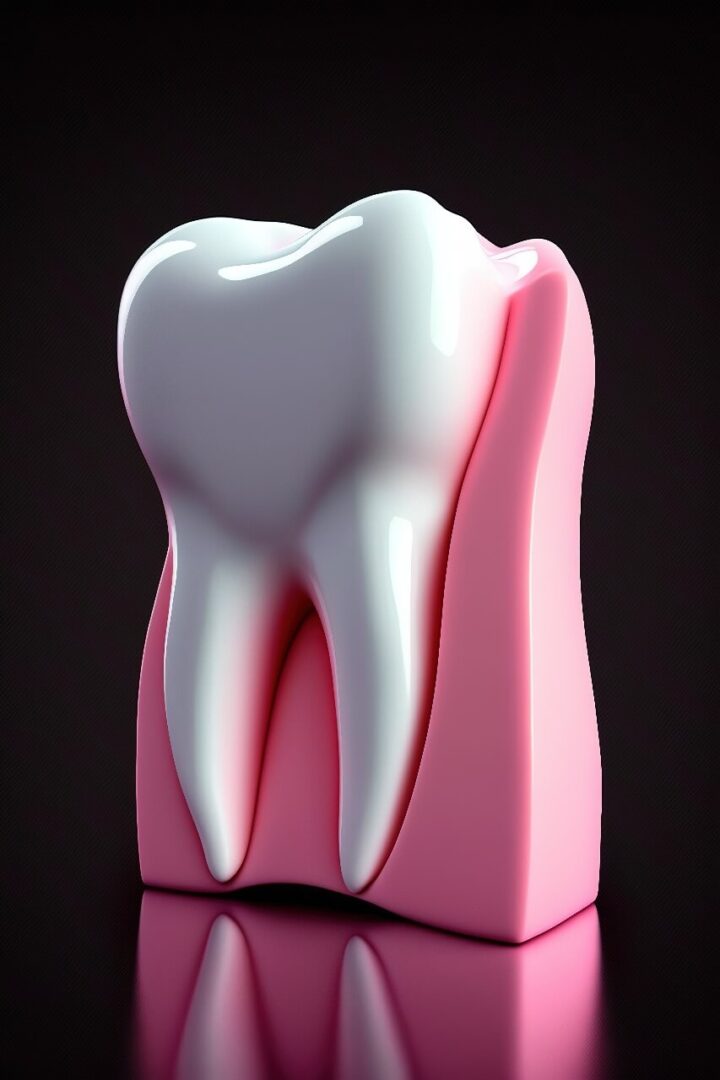
1. Introduction to wisdom teeth: What are they and why do they cause problems?
Introduction to wisdom teeth: What are they and why do they cause problems?
Wisdom teeth, also known as the third molars, are the last set of teeth to emerge in the back corners of the mouth, usually during the late teens or early twenties. These teeth were essential for our ancestors who needed them to chew tough, unprocessed foods. However, as our diets have evolved, our jaws have become smaller, leaving less room for these additional teeth.
The arrival of wisdom teeth can often lead to various dental problems. One common issue is impaction, which occurs when there is not enough space in the mouth for the teeth to fully erupt. As a result, they may become partially or completely trapped beneath the gum line. This can cause discomfort, swelling, and even infection.
Even when wisdom teeth do manage to emerge fully, they can still cause problems due to their positioning. They may grow at an angle, pushing against neighboring teeth, causing overcrowding and misalignment. This can lead to difficulties in cleaning, making these teeth more prone to decay and gum disease.
Furthermore, the late eruption of wisdom teeth means that the surrounding gum tissue is often fully developed, making the extraction process more complicated and potentially more uncomfortable for the patient.
Understanding the nature and potential problems associated with wisdom teeth is crucial for maintaining optimal oral health. In the following sections, we will delve deeper into the signs of problematic wisdom teeth, potential complications, and the recommended treatments to alleviate any discomfort or prevent future issues.
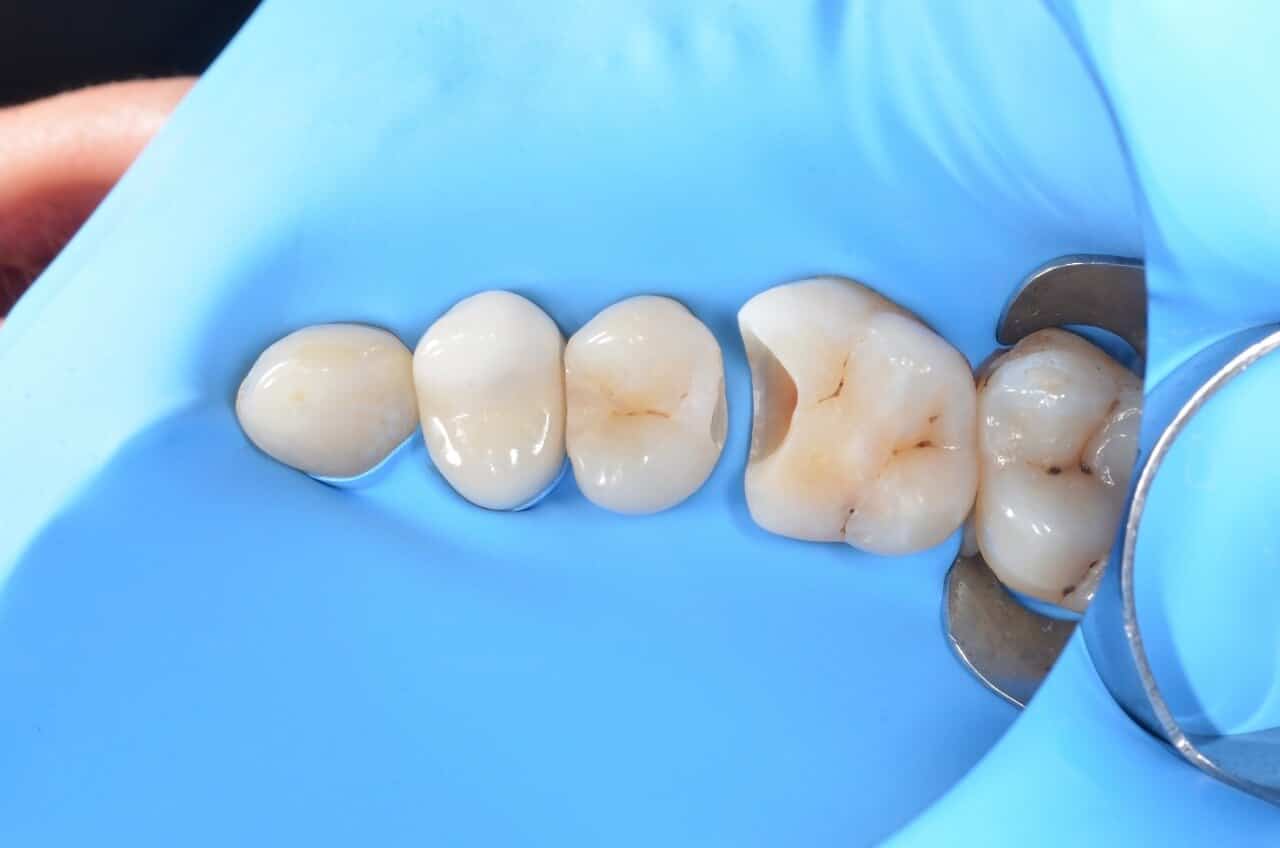
2. When do wisdom teeth typically erupt?
Wisdom teeth, also known as third molars, are the last set of teeth to develop in the human mouth. Erupting typically between the ages of 17 and 25, they often cause confusion and concern among individuals as they navigate their dental health journey.
The eruption of wisdom teeth can vary from person to person. Some individuals may have all four wisdom teeth erupt, while others may only have one or none at all. It is not uncommon for these teeth to be impacted, meaning they do not have enough space to fully emerge or they grow at an angle.
The timing of wisdom teeth eruption can also differ. Some individuals may experience their wisdom teeth emerging in their late teens, while others may not see any signs until their early twenties. It is important to note that the eruption process can be uncomfortable and may cause pain, swelling, or discomfort in the jaw.
Regular dental check-ups and X-rays play a crucial role in monitoring the development and eruption of wisdom teeth. Dentists can assess the positioning of these teeth and determine if they need to be extracted to prevent potential complications such as overcrowding, misalignment, impaction, or damage to neighboring teeth.
Understanding when wisdom teeth typically erupt allows individuals to stay proactive in their oral health. Consulting with a dental professional is essential to determine the best course of action for managing these teeth and ensuring a healthy and pain-free smile.

3. Signs and symptoms of impacted wisdom teeth
Impacted wisdom teeth can cause a variety of signs and symptoms that can range from mild discomfort to more severe pain and complications. It’s important to be aware of these signs so you can take appropriate actions to address the issue.
One common sign of impacted wisdom teeth is pain or discomfort in the back of the mouth. This can occur as the wisdom teeth try to erupt through the gums, but are unable to do so fully. The pain may be intermittent or constant, and it can radiate to the jaw, ear, or head.
Swelling and redness in the gums around the area of the impacted tooth is another indication. The gum tissue may become sensitive and tender to touch. In some cases, there may even be visible pus or an infection around the impacted tooth, leading to an unpleasant taste or odor in the mouth.
Another symptom to watch out for is difficulty opening the mouth or chewing. Impacted wisdom teeth can cause stiffness and limited movement in the jaw, making it uncomfortable to eat or speak. This can also lead to headaches or earaches.
Impacted wisdom teeth can also cause crowding or shifting of the surrounding teeth. As the impacted tooth tries to find space to erupt, it can push against neighboring teeth, causing them to become misaligned or crooked. This can affect your bite and overall dental alignment.
In some cases, impacted wisdom teeth may not cause any noticeable symptoms and can go undetected. That’s why regular dental check-ups and X-rays are crucial to identify any issues with your wisdom teeth before they worsen.
If you’re experiencing any of these signs or symptoms, it’s important to consult with a dentist or oral surgeon. They can evaluate your situation and recommend the appropriate treatment, which may include extraction of the impacted wisdom teeth. Remember, early detection and intervention can help prevent further complications and maintain your oral health.

4. Should you always have your wisdom teeth removed?
Many people wonder whether it is necessary to have their wisdom teeth removed. The truth is, there is no one-size-fits-all answer to this question. It ultimately depends on the individual’s unique circumstances.
Wisdom teeth, also known as third molars, typically erupt between the ages of 17 and 25. For some individuals, these teeth emerge without causing any issues. They align properly with the rest of the teeth, leaving enough space in the jaw. In such cases, extraction may not be necessary.
However, for a significant number of people, wisdom teeth can pose problems. One common issue is impacted wisdom teeth, which means they do not have enough space to fully emerge or develop normally. This can lead to pain, swelling, and potential damage to the surrounding teeth.
Furthermore, wisdom teeth can also cause crowding in the mouth. Even if they partially erupt, they may push against the adjacent teeth, disrupting the alignment and causing misalignment or crookedness.
Another consideration is oral hygiene. Wisdom teeth are located at the back of the mouth, making them difficult to clean properly. This can increase the risk of gum disease, cavities, and other dental problems.
Ultimately, it is best to consult with your dentist or oral surgeon to determine whether removing your wisdom teeth is recommended. They will consider factors such as the position of the teeth, the size of your jaw, and any existing dental issues you may have. By discussing your specific situation with a dental professional, you can make an informed decision about whether to proceed with wisdom teeth removal.

5. The extraction process: What to expect before, during, and after the procedure
Extraction of wisdom teeth is a common dental procedure that many individuals will go through at some point in their lives. If you’re scheduled to have your wisdom teeth removed, it’s important to understand what to expect before, during, and after the procedure.
Before the extraction, your dentist or oral surgeon will typically conduct a thorough examination of your mouth and take X-rays to assess the position and condition of your wisdom teeth. This evaluation helps determine the complexity of the extraction and if any special considerations are needed.
During the procedure, you will be given anesthesia to ensure your comfort and minimize any pain. The type of anesthesia used can vary depending on the complexity of the extraction and your personal preference. Your dentist or oral surgeon will discuss the options with you beforehand.
Once you are properly numbed, the extraction process begins. Your dentist or oral surgeon will carefully remove the wisdom teeth from their sockets. In some cases, the teeth may need to be sectioned into smaller pieces for easier removal. This is common if the teeth are impacted or if there is limited access to them.
After the extraction, you will be given post-operative instructions to follow. These instructions may include recommendations for pain management, swelling reduction, and proper oral hygiene during the healing process. It’s important to carefully follow these instructions to promote a smooth and speedy recovery.
Expect some degree of discomfort and swelling in the days following the extraction. This can be managed with over-the-counter pain medication and ice packs applied to the affected area. It’s also important to stick to a soft food diet and avoid using straws, as these can disrupt the healing process.
During the recovery period, it’s crucial to keep your mouth clean to prevent infection. Gently rinse your mouth with warm saltwater and avoid brushing the extraction site until your dentist gives you the green light.
Overall, while the extraction process may sound intimidating, it is a routine procedure performed by experienced dental professionals. By understanding what to expect before, during, and after the procedure, you can approach your wisdom teeth extraction with confidence and ensure a smooth recovery.
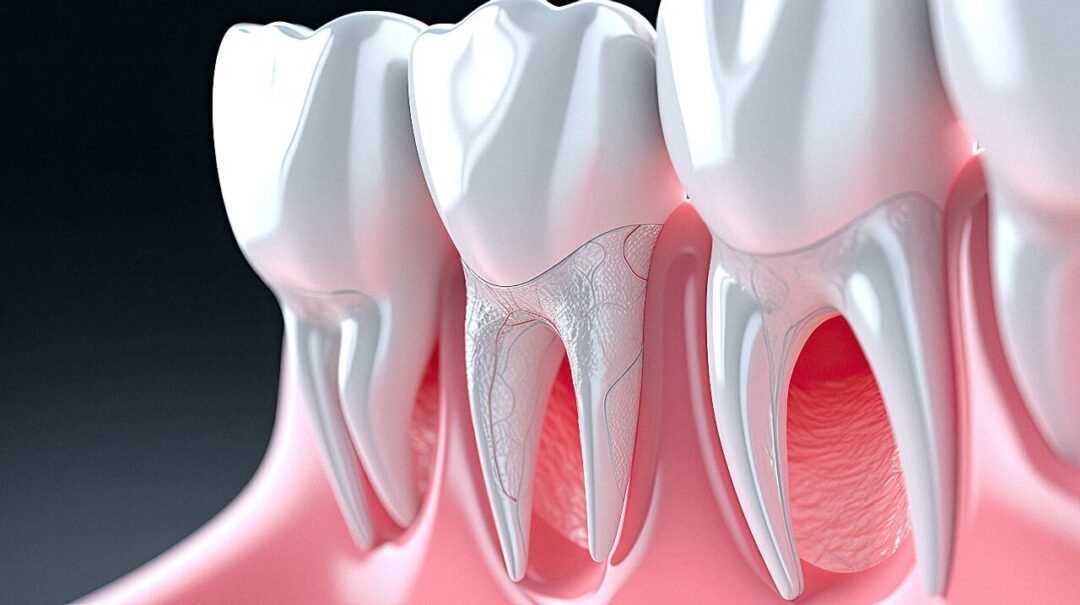
6. Potential complications and risks associated with wisdom tooth extraction
While wisdom tooth extraction is a common dental procedure, it is important to be aware of the potential complications and risks that may arise. Although most extractions are performed without any issues, it’s crucial to understand the potential risks involved in order to make an informed decision.
One of the most common complications is dry socket, which occurs when the blood clot that forms after the extraction becomes dislodged or dissolves. This can result in severe pain and delayed healing. Thankfully, dry socket can be managed by your dentist or oral surgeon, who may place a special dressing to promote healing.
Infections can also occur after wisdom tooth extraction. This can happen if bacteria enter the extraction site, leading to swelling, pain, and potential fever. Following your dentist’s post-extraction care instructions, including proper oral hygiene and taking prescribed antibiotics if necessary, can help minimize the risk of infection.
Nerve damage is another potential risk, especially if the wisdom tooth is close to the nerves in your jaw. This can lead to numbness, tingling, or even loss of sensation in the tongue, lips, or chin. While rare, it is important to discuss this risk with your dentist or oral surgeon before the procedure.
Additionally, there may be risks associated with anesthesia, especially if you opt for general anesthesia. Although complications are rare, it is important to disclose your medical history and any medications you are currently taking to your oral surgeon to ensure your safety during the procedure.
It’s crucial to have a thorough discussion with your dentist or oral surgeon to understand the potential complications and risks specific to your individual case. This will allow you to make an informed decision and be prepared for any potential challenges that may arise during or after the extraction process.
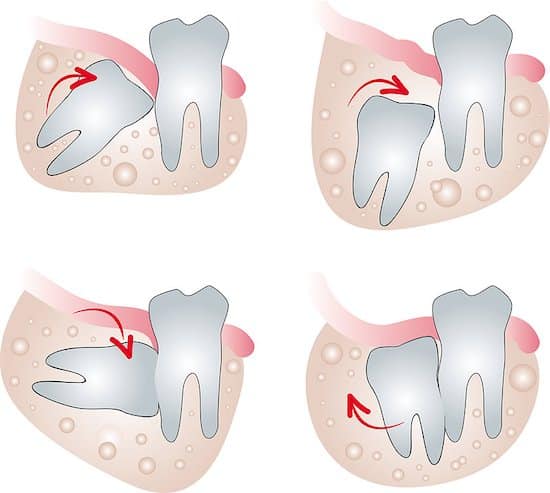
7. Alternatives to extraction: When is it necessary to keep your wisdom teeth?
While wisdom teeth extraction is a common dental procedure, it’s not always necessary for everyone. In some cases, keeping your wisdom teeth can be a viable option. However, it’s important to understand the factors that determine whether extraction is necessary or if alternative options are suitable for you.
One key consideration is the alignment of your wisdom teeth. If they grow in straight and properly aligned with the rest of your teeth, they may not cause any issues. Regular dental check-ups and X-rays can help your dentist assess the alignment and determine if they can be kept.
Another factor to consider is the available space in your mouth. If your jaw has enough room to accommodate the wisdom teeth without causing overcrowding or misalignment of other teeth, keeping them may be a reasonable choice. However, it’s essential to monitor any changes or potential issues that may arise over time.
Additionally, the overall health of your wisdom teeth plays a significant role in the decision-making process. If your wisdom teeth are healthy, fully erupted, and easily accessible for proper cleaning and maintenance, extraction may not be necessary.
It’s crucial to consult with your dentist or oral surgeon to evaluate your specific case. They will consider various factors, including the potential risks and benefits of keeping your wisdom teeth, before recommending the best course of action.
Remember, every individual’s situation is unique, and what works for one person may not be suitable for another. By discussing your concerns and options with a dental professional, you can make an informed decision regarding the extraction or preservation of your wisdom teeth.
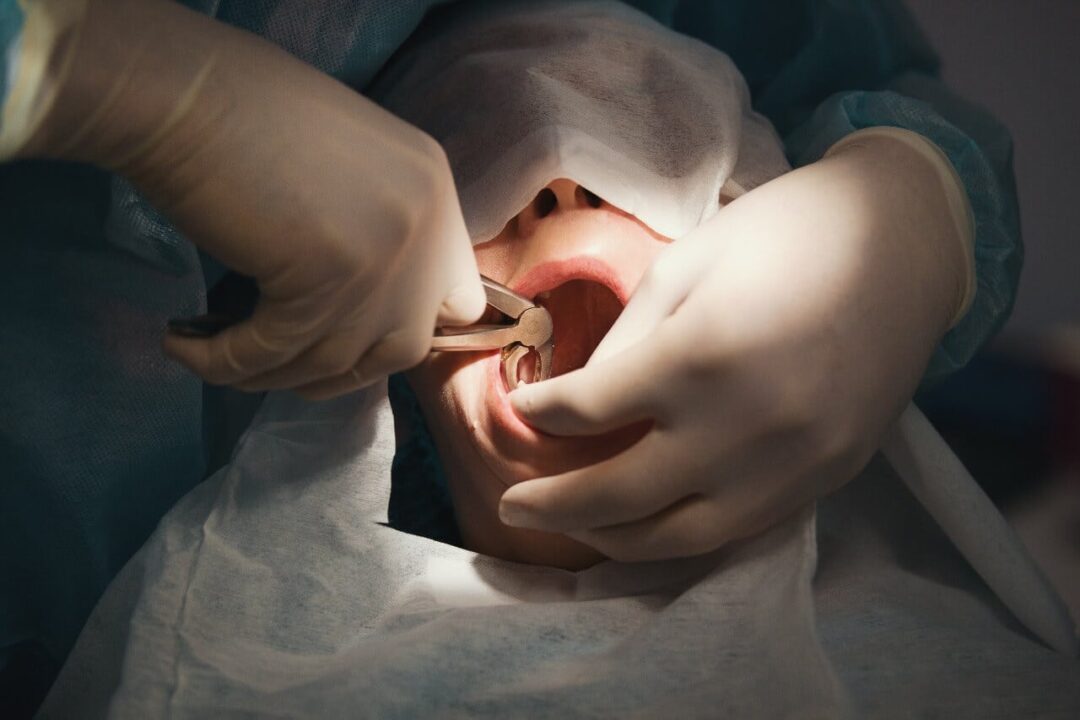
8. Tips for managing pain and discomfort after wisdom tooth extraction
After undergoing wisdom tooth extraction, it is common to experience pain and discomfort during the recovery period. However, there are several tips and strategies that can help you manage this discomfort effectively.
First and foremost, it is crucial to follow your dentist or oral surgeon’s post-operative instructions carefully. These instructions may include taking prescribed pain medications or over-the-counter pain relievers to alleviate any discomfort. It is essential to take these medications as directed to ensure optimal pain relief.
Applying ice packs to the affected area can also be beneficial in reducing swelling and numbing the area temporarily. Be sure to wrap the ice pack in a thin cloth or towel before applying it to the outside of your face to prevent direct contact and potential skin damage.
Maintaining good oral hygiene is crucial during the recovery period. Gently brushing your teeth, being cautious around the extraction site, and rinsing your mouth with warm saltwater can help keep the area clean and prevent infection.
Choosing the right foods to eat is another important aspect of managing pain and discomfort. Opt for soft and easy-to-chew foods like mashed potatoes, yogurt, smoothies, and soups during the initial days after surgery. Avoid hard, chewy, or spicy foods that can irritate the extraction site and prolong the healing process.
It is essential to rest and give your body time to heal. Avoid strenuous physical activities, smoking, and drinking through a straw, as these can hinder the healing process and potentially dislodge the blood clot, leading to a painful condition called dry socket.
Additionally, keeping your head elevated while sleeping can help reduce swelling and promote better blood circulation to the affected area.
Remember, everyone’s recovery process may vary, and it is essential to consult your dentist or oral surgeon if you have any concerns or questions about managing pain and discomfort after wisdom tooth extraction. With proper care and following these tips, you can make your recovery period more comfortable and ensure a smooth healing process.
9. Common myths and misconceptions about wisdom teeth
There are many myths and misconceptions surrounding wisdom teeth, which can often lead to confusion and unnecessary worry. Let’s take a closer look at some of the most common misconceptions and set the record straight.
Myth 1: Everyone needs their wisdom teeth removed.
Truth: Not everyone needs their wisdom teeth extracted. While it’s true that many people experience issues with their wisdom teeth, such as overcrowding or impaction, there are also cases where the wisdom teeth grow in properly and cause no problems. It’s important to consult with a dental professional to determine the best course of action for your specific situation.
Myth 2: Wisdom teeth always cause pain.
Truth: While it’s true that impacted wisdom teeth can cause pain and discomfort, not all wisdom teeth will lead to pain. In fact, some people may not even be aware that their wisdom teeth are erupting until a dental examination reveals their presence. Regular dental check-ups are crucial in monitoring the development and positioning of your wisdom teeth.
Myth 3: Wisdom teeth should be removed as soon as they appear.
Truth: The timing of wisdom teeth removal varies for each individual. In some cases, it may be recommended to remove the wisdom teeth as soon as they start to emerge, especially if there are signs of impaction or potential complications. However, in other cases, it may be more appropriate to monitor the growth and development of the teeth before making a decision. Your dentist or oral surgeon will assess your specific situation and provide guidance on the best timing for removal, if necessary.
Myth 4: Wisdom teeth removal is a complicated and painful procedure.
Truth: While the procedure may sound intimidating, wisdom teeth removal is a routine dental procedure that is performed by skilled professionals. With advancements in modern dentistry and anesthesia options, the procedure is generally carried out with minimal discomfort. Your dentist or oral surgeon will ensure that you are adequately numbed and comfortable throughout the process.
By dispelling these common myths and misconceptions, you can gain a better understanding of wisdom teeth and make informed decisions regarding your oral health. Remember, it’s always best to consult with a dental professional who can provide personalized advice based on your unique circumstances.
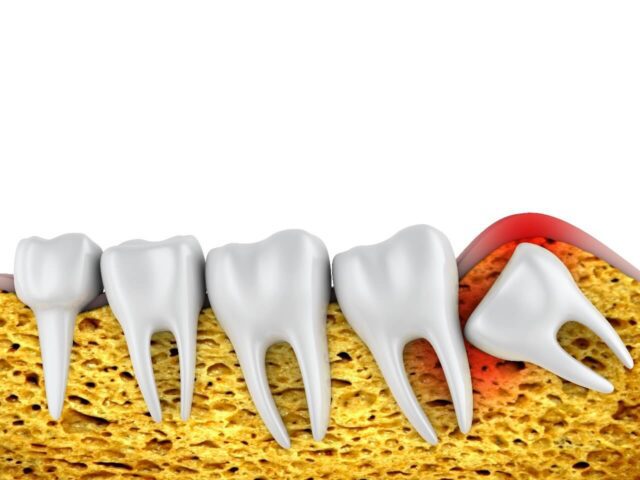
10. Final thoughts: Taking care of your oral health and seeking professional advice
Taking care of your oral health should always be a top priority, and seeking professional advice is crucial when it comes to your wisdom teeth. While the information provided in this blog post can serve as a guide, every individual’s situation is unique and it’s important to consult with a dental professional for personalized advice.
Regular dental check-ups and cleanings are essential for maintaining good oral health. Your dentist will be able to monitor the development and positioning of your wisdom teeth through X-rays and examinations. They can provide insight into whether your wisdom teeth are impacted, causing pain or discomfort, or if they are at risk of causing future issues.
If it is determined that your wisdom teeth need to be removed, your dentist or oral surgeon will discuss the procedure with you in detail. They will explain the reasons for extraction, the process itself, and what to expect during the recovery period. It is important to follow their instructions carefully to ensure proper healing and minimize any potential complications.
Remember, everyone’s experience with wisdom teeth is different. Some individuals may never experience any issues and can keep their wisdom teeth intact. Others may require extraction due to overcrowding, impaction, or potential damage to adjacent teeth. Your dentist is the best person to assess your specific situation and provide appropriate advice.
In conclusion, taking care of your oral health goes beyond regular brushing and flossing. When it comes to wisdom teeth, seeking professional advice is essential to ensure the best course of action for your individual needs. Don’t hesitate to schedule an appointment with your dentist to discuss any concerns or questions you may have regarding your wisdom teeth. Your smile and overall oral health will thank you for it!
We hope you found our blog post on wisdom teeth informative and helpful in demystifying this dental topic. Understanding the basics of wisdom teeth, their potential problems, and the recommended treatment options is crucial for maintaining your oral health. By knowing what to expect and how to address any issues that may arise, you can confidently navigate your dental journey. Remember to consult with your dentist for personalized advice and guidance. Taking care of your oral health is essential, and with the knowledge from our blog post, you are well-equipped to make informed decisions regarding your wisdom teeth.
